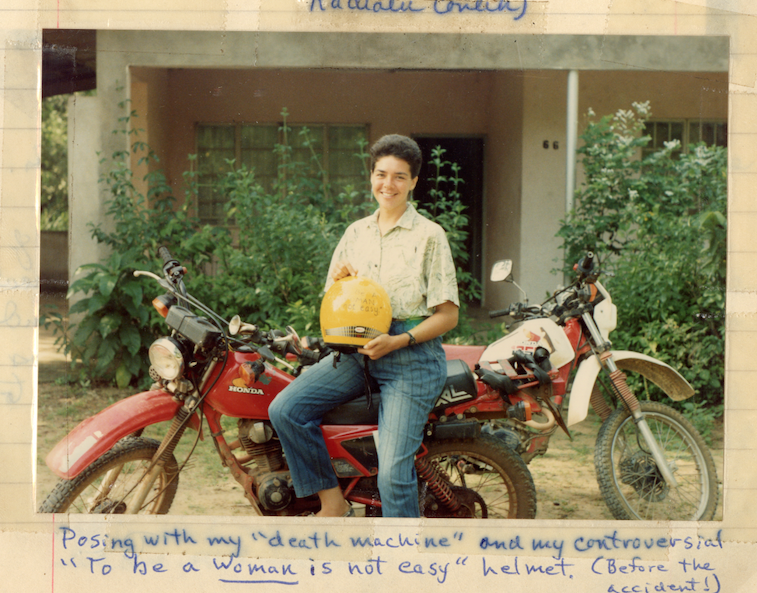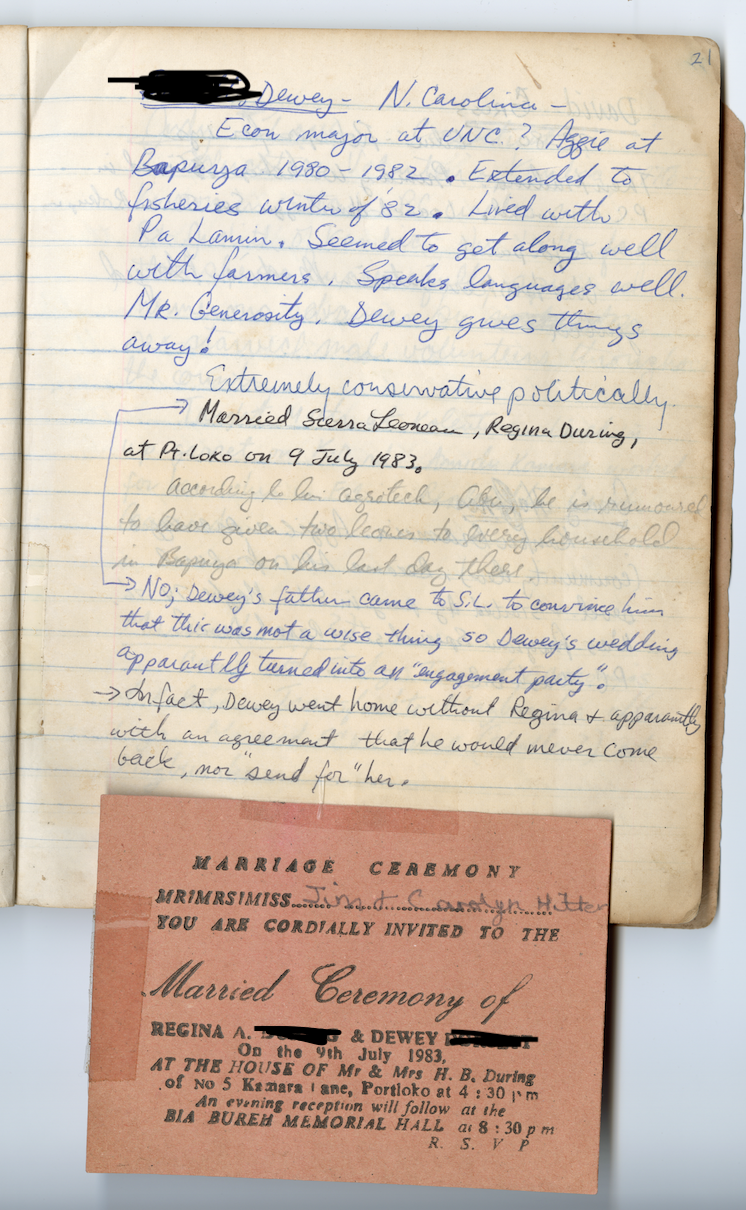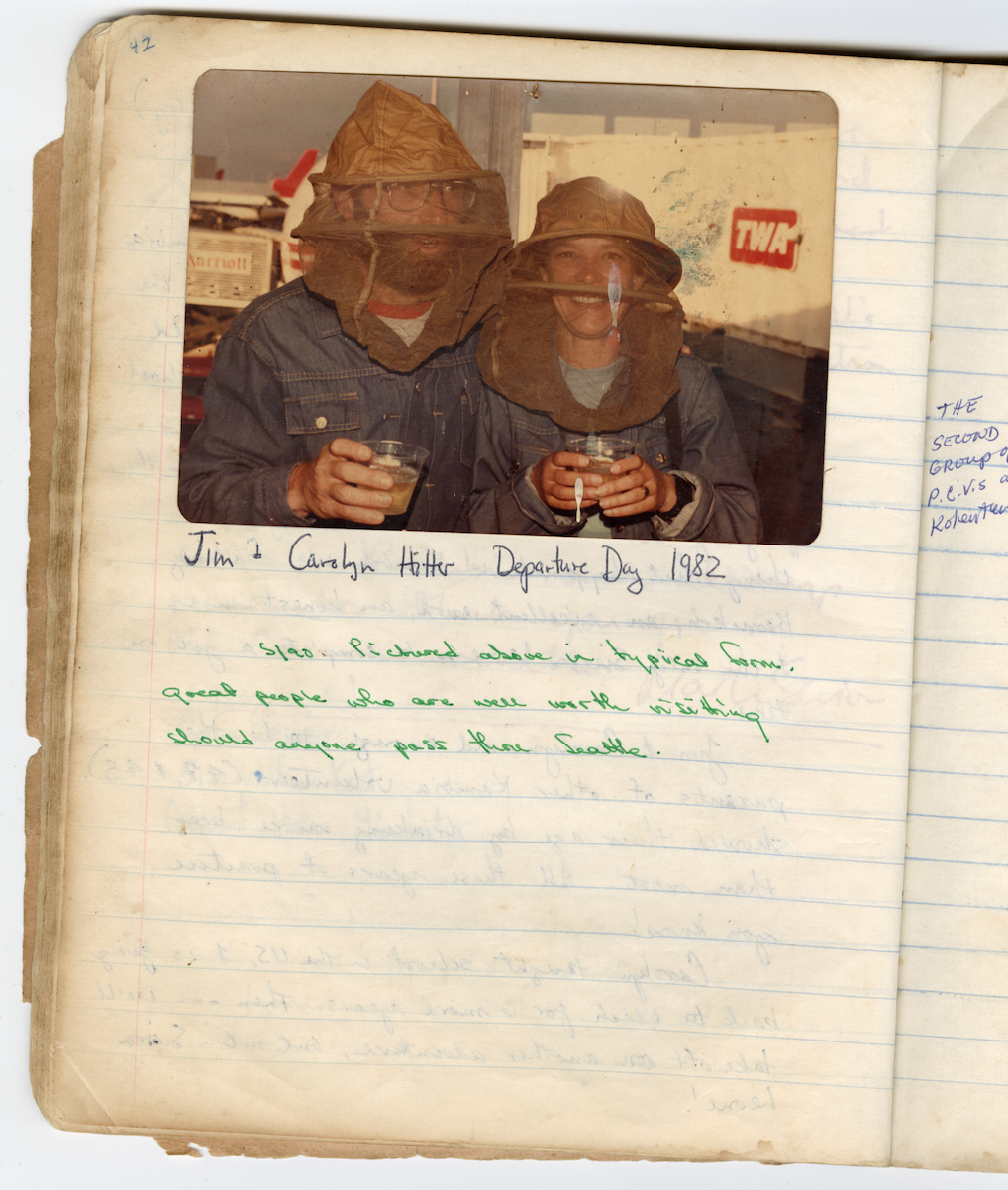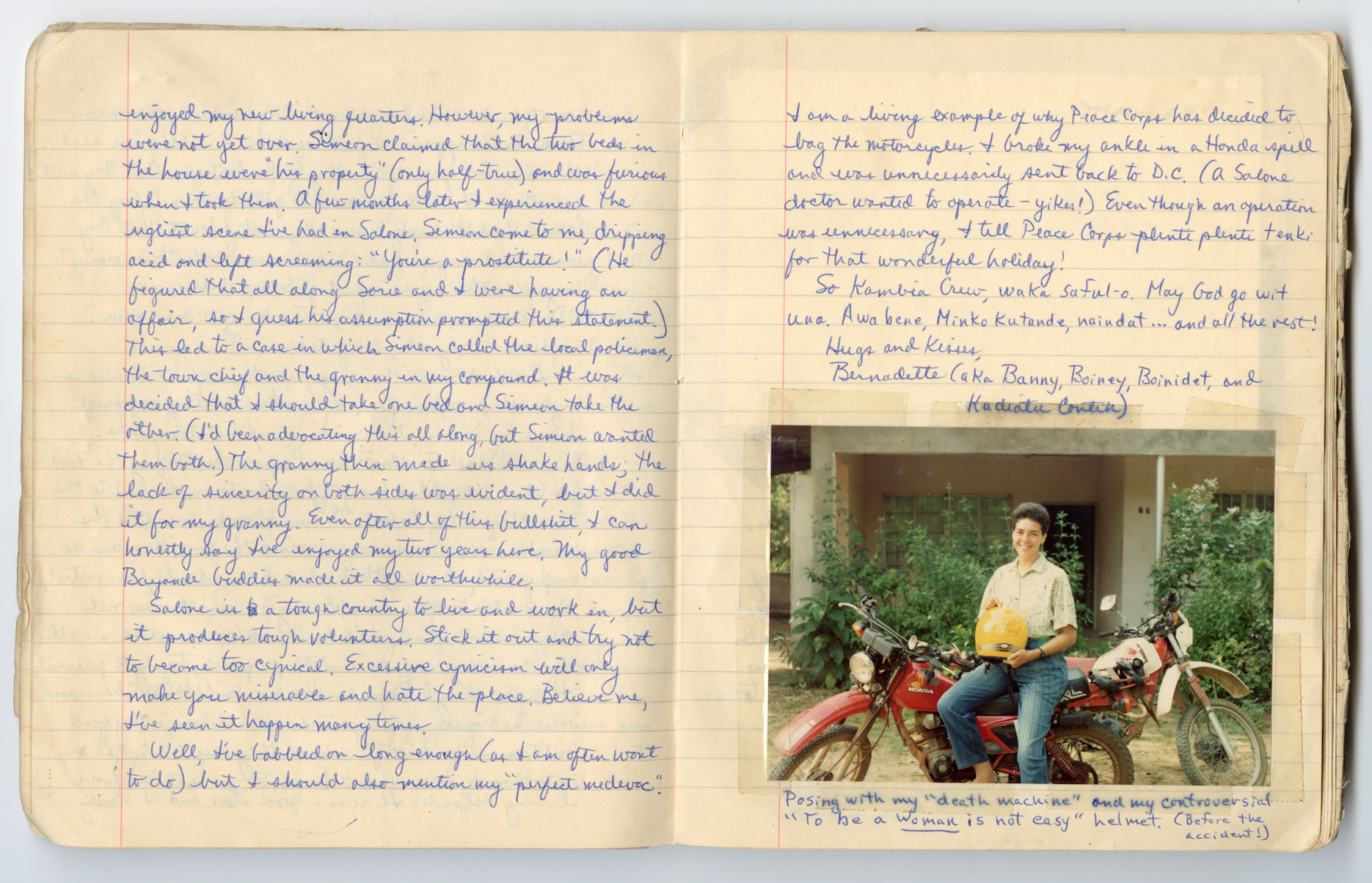Since March 16, 2020, American University and Peace Corps Community Archives staff moved their tasks online to wait out the impact of COVID-19. While this bars access to our physical collections, the PCCA’s digital archives has a number of interesting journals, memoirs, and photographs available to explore.
As I flipped through the pages of a guestbook from the Volunteer Rest House in Kambia, Sierra Leone–donated by Jim Hiiter–one photo stuck out to me more than the rest.

A young woman perched on the seat of a motorbike, with the caption, “Posing with my ‘death machine’ and my controversial ‘to be a woman is not easy’ helmet. (Before the accident.)”
Thankfully, Bernadette Chaloupka only injured her ankle after an accident on her motorbike; however, the Peace Corps still flew her back to Washington, D.C. to recover—cutting short her time in Sierra Leone. She writes about travelling back to the U.S. afer a local doctor called for surgery:
“I’m a living example of why the Peace Corps has decided to ban motorcycles…Even though an operation was unnecessary, I tell Peace Corps plenti plenti tenki for that wonderful holiday!”
Chaloupka’s experience with motorcycles is just one of many. As I dug through Peace Corps policies, volunteer memoirs and letters home, I found that Chaloupka’s brief recovery period was a minor consequence compared with the many stories of motorcycle accidents.
Between 1961 and 2003, the Peace Corps reported that 89 volunteers died in motor vehicle accidents—21 of them involved a motorcycle. An article in the 1985 Peace Corps Times advised volunteers on motorcycle safety, reporting that in 1983, fourteen volunteers were evacuated to the United States due to motorcycle injuries.
That said, reliable transportation is an important piece of volunteer service, when distances between villages and cities could be several hundred miles away. For some, motorbikes were a beneficial way to get around during their assignments, connecting volunteers to important resources in other regions.
Alan Crew, a PCV in Nigeria 1965- 1966, mentions that as the only form of transportation available to him, his motorbike was important for travelling the long distances from his village to meet other volunteers or go into bigger cities. He wrote to his family in 1965,
My motorcycle is running beautifully, although it still isn’t completely broken in. I can understand the almost reverent feeling the old volunteers have for their machines, as they afford one the only means of mobility available…There are 104 of us within 125 miles of each other so that we can all get together on weekends if we like. Therefore, the mobility of the motorcycle takes on a new dimension of importance.
In the case of Jane Wertz, her motorcycle may have been the only thing that helped her safely leave Zaire during military-led riots in 1991. Wertz was featured in a Peace Corps News article following the event, relaying her journey from her host village to Kikwit, the closest city with a Peace Corps office. “Usually it’s about a 3 ½ hour trip, but it took me about six hours because I had too much stuff on my bike…It was dark. I had fallen about six times. The bike was really, really heavy. There were times when I thought I wouldn’t be able to pick it up.” Wertz’s motorcycle, as heavy as it was, was the only thing that could have gotten her to the office for evacuation.
Today, the Peace Corps allows volunteers to use motorbikes only on a project-by-project basis. Many of these exceptions are for volunteers in rural areas, only after comprehensive safety training. And, at the heart of the manual? Wear your helmet!
Sources:
Office of the Chief of Staff, “MS 523 Motorcycles and Bicycles” January 7, 2013. https://files.peacecorps.gov/documents/MS-523-Policy.pdf
Adventure in a Great Big World,” by Alan Crew, Peace Corps Community Archives, https://blogs.library.american.edu/pcca/adventure-in-a-great-big-world/
Angene Wilson and Jack Wilson, Voices from the Peace Corps: Fifty Years of Kentucky Volunteers (University Press of Kentucky, 2011).
Susan Trebbe and James C. Flanigan, “Exit from Zaire,” Peace Corps Times, Fall 1991. https://dra.american.edu/islandora/object/peacecorps%3A2500?solr_nav%5Bid%5D=680d78e377b816da1f3b&solr_nav%5Bpage%5D=0&solr_nav%5Boffset%5D=8
Pat Seaman, “Peace Corps and the Art of Motorcycle Safety,” Peace Corps Times, January-February 1985, 8-9. https://dra.american.edu/islandora/object/peacecorps%3A2463/datastream/PDF/view





